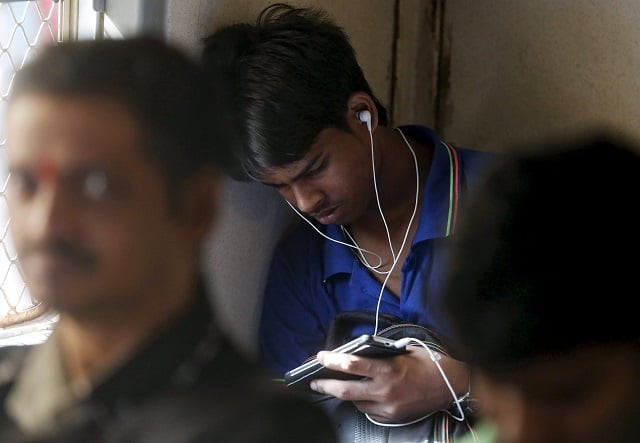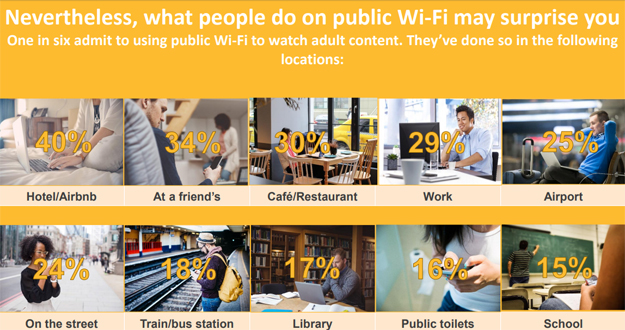One in three Indians uses free Wi-Fi to watch porn: study
Half of them watch adult content at work, in hotels, hostels or Airbnb and one third at cafés or restaurants

A man watches a video on his mobile phone as he commutes by a suburban train in Mumbai, India, March 31, 2016. PHOTO: Reuters/File
The security firm surveyed around 15,000 adults across 15 countries including India, Japan, Mexico, Netherlands, Brazil, the US and the UK. Out of over 1,000 respondents from India, almost half of them admitted that they watched adult content over public Wi-Fi at work, in hotels, hostels or Airbnb while over one third of them said they did so at cafés or restaurants.
The study revealed that the phenomenon is not limited to Indians only as one in six respondents globally admitted using free public Wi-Fi to watch explicit or suggestive content.
Facebook leaked documents show types of content it allows: Guardian
Of the total people who admitted watching adult content using public Wi-Fi, about 17 per cent did so at libraries, 25 per cent used free Wi-Fi at an airport and 18 per cent had done so at a bus or train station.
Interestingly, 24 per cent respondents said they watched adult content even on streets using public Wi-Fi while 15 per cent even used Wi-Fi at schools to watch adult content.

The cyber security firm said people did not realise that by using public Wi-Fi, they were putting their personal and private information at risk.
Two out of three people surveyed said they thought their personal information was safe when using public Wi-Fi, while 55 per cent said they could not tell whether a public Wi-Fi network was secure or not.
PornHub uploads anti-government documentary banned by Russian court
Despite such glaring uncertainties, less than 20 per cent use a virtual private network (VPN) to protect themselves.
“There is a deep divide between what people think is safe or private when using public Wi-Fi versus the reality,” said Nick Shaw, the vice president and general manager of Norton by Symantec.
“What someone thinks is private on their personal device can easily be accessed by hackers through unsecured Wi-Fi networks or even apps with privacy vulnerabilities.”
Have something to add to this story? Share it in the comments section below.


















COMMENTS
Comments are moderated and generally will be posted if they are on-topic and not abusive.
For more information, please see our Comments FAQ